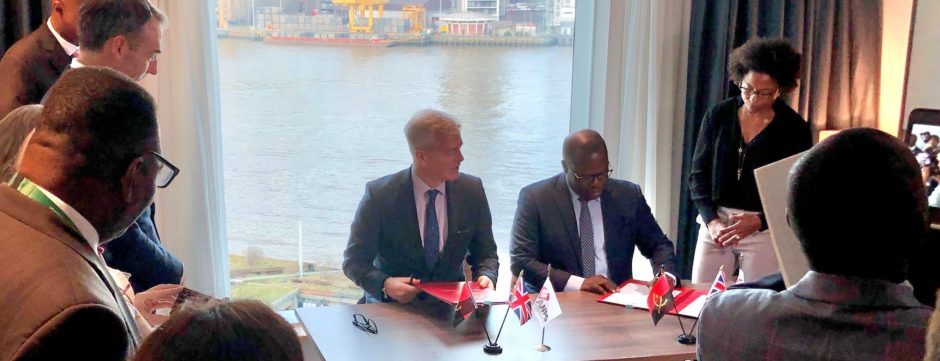
The Agência Nacional de Petróleo, Gás e Biocombustíveis (ANPG) has signed two deals with BP, on the sidelines of the UK-Africa Investment Summit in London.
The first sets the stage for a risk-sharing contract (RSC) on Block 18/15, while the second focuses on supporting demining work in Benguela Province.
Block 18 is already producing but the new agreement sets the stage for additional exploration. BP is the operator and is working with Sonangol P&P and Sonangol Sinopec International (SSI).
ANPG’s chairman Paulino Jerónimo said the agreement in principle paved the way for a contract and “subsequent prospecting in an area with much oil potential and where we already have some oil discoveries”. He described BP as “highly engaged” and expressed confidence that the company would have an “ambitious work programme”.
BP Angola’s president Stephen Willis said the company was excited about testing a new area in the Angolan offshore. “The Cretaceous formations in Block 18/15 present good opportunities for exploration and potential developments”, he said, with potential for subsea tiebacks to the Greater Plutonio floating production, storage and offloading (FPSO) vessel.
Norway’s Equinor has also been linked to Block 18/15.
Sonangol and BP signed a memorandum of understanding (MoU) on exploring options on Block 18/15 in December 2018. This came at the same time that BP committed to progressing the Platina field, in Block 18 and extending the licence to 2032. This field is expected to start producing by early 2022, via subsea tieback to Greater Plutonio.
Angola is making progress in handing out three blocks under its recent bid round. BP is in line for a 9.5% stake in Block 29, which will be operated by Total with 46%.
The second agreement extends a memorandum of understanding (MoU) on demining work with the Halo Trust. This sets out plans to remove mines in Benguela until 2025, with financing of $6.1 million.
In other news, Sonangol has struck a new deal for a refinery investor. Russian-backed Gemcorp is said to have signed on to support a new project in the Cabinda exclave, which will ultimately have 60,000 bpd of capacity. Sonangol had initially struck a deal with United Shine to carry out this work but the state-owned company lost patience with its partner, alleging failure to make progress.
